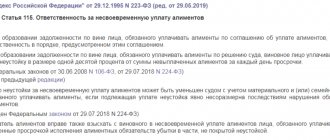The courts are given the right to reduce the amount of the penalty that the plaintiff demands to recover from the defendant for violation of obligations. Whether it is provided for by contract or law. The conditions for the reduction are specified in the law. But even more of them were born in judicial practice.
The highest courts played an active role in the formation of these conditions: the Constitutional Court of the Russian Federation, the Supreme Court of the Russian Federation and the Supreme Arbitration Court of the Russian Federation. As a result, today it is possible to compile a useful selection for both the creditor and the debtor of weighty arguments for and against reducing the penalty, which is presented to your attention below.
Legal grounds for reducing penalties
Article 333 of the Civil Code of the Russian Federation contains rules for reducing penalties by the court.
It follows from them that if the obligation is violated by a person carrying out business activities, the court has the right to reduce the penalty if three conditions are met:
a) the debtor’s application for such reduction;
b) obvious disproportion of the penalty to the consequences of breach of obligation;
c) in exceptional cases, if it is proven that the collection of a penalty in the amount provided for in the contract may lead to the creditor receiving an unjustified benefit.
“Civil Code of the Russian Federation (Part One)” dated November 30, 1994 No. 51-FZ
Editor's note: The rules for reducing the amount of the penalty on the basis of this article also apply in cases where the penalty is determined by law, for example, Part 2 of Art. 6 of the Law on participation in shared construction, Art. 23, 23.1, paragraph 5 of Art. 28, art. 30 and 31 of the Law on Protection of Consumer Rights, paragraph 21 of Art. 12 of the Law on Compulsory Motor Liability Insurance and so on.
Rules for the courts to consider the issue of reducing the amount of the penalty
The basis for revising the amount of the penalty established by the contract in relation to persons who have violated their obligations and are engaged in business activities, in accordance with clause 1 of Art. 333 of the Civil Code is the statement of this person.
Paragraph 71 of Resolution No. 7 specifies which persons must submit a petition to the court to reduce the amount of monetary sanctions:
- commercial organizations;
- non-profit organizations if, along with non-profit activities, they carry out income-generating activities;
- IP.
Within the meaning of this norm, a reduction in the amount of the penalty for other persons, i.e. those who do not carry out entrepreneurial activities, is possible without their application.
The Plenum of the Supreme Court of the Russian Federation in paragraph 71 of Resolution No. 7 confirms this position, clarifying that in relation to such persons the penalty can be reduced at the initiative of the court hearing the case. The main condition for this is the obvious disproportion of the penalty.
The size is changed by the court according to the following rules:
- if the court identifies a clear disproportionality of the penalty in relation to an individual or other person who does not carry out entrepreneurial activities, it brings this issue up for discussion between the parties;
- the burden of proof lies with the defendant (debtor);
- the application may be submitted during the consideration of the case or during the review of the case on appeal;
- in cassation, the decision regarding the reduction of the penalty can be canceled if the party proves a violation of the rules of substantive law by the lower courts.
The penalty should punish the debtor and compensate for losses
The Constitutional Court of the Russian Federation has formulated a legal position on the meaning of Art.
333 Civil Code of the Russian Federation. This article, in the part that establishes the right of the court to reduce the amount of the penalty to be collected if it is clearly disproportionate to the consequences of the violation of the obligation, essentially instructs the court to establish a balance between the measure of liability applied to the violator and the amount of actual damage caused as a result of a specific offense.
This approach, according to the Constitutional Court of the Russian Federation, is consistent with the provisions of Part 3 of Art. 17 of the Constitution of the Russian Federation.
Ruling of the Constitutional Court of the Russian Federation dated June 23, 2016 No. 1363-O “On the refusal to accept for consideration the complaint of citizens Gennady Semenovich Bukhtoyarov and Olga Pavlovna Bukhtoyarova regarding the violation of their constitutional rights by the provisions of paragraph 1 of Article 10, paragraph 1 of Article 333 and paragraph 1 of Article 401 of the Civil Code Russian Federation".
When is a reduction allowed?
- Legal or contractual penalties can be reduced in court.
- A reduction in the penalty is possible only if it is clearly disproportionate to the consequences of the violation of the obligation.
- If the debtor is an individual (citizen), then the court has the right, on its own initiative, to reduce the amount of the penalty if it sees an obvious disproportion to the consequences of the violation.
- If the debtor is an entrepreneur or legal entity, then the court reduces the penalty (fine, penalty) only upon the application (petition) of the defendant. The application must be substantiated. It can be done either orally in court or in writing.
However, this means that individuals do not need to declare a reduction in the penalty. Just as needed!
Disproportionality must also be proven. It is the responsibility of the defendant (both the citizen and the organization) to prove that the penalty is disproportionate. Disproportionality and unreasonableness of losses mean, for example, that the plaintiff’s losses, which arose due to the defendant’s delay, are much lower than the accrued penalty.
Arguments in favor of the plaintiff and defendant regarding the amount of the penalty
The Plenum of the RF Armed Forces devoted several points to the application of Art.
333 Civil Code of the Russian Federation. Below they are broken down into arguments for both sides.
Arguments in favor of the creditor (why the penalty should not be reduced)
1. The burden of proving the disproportionateness of the penalty and the unreasonableness of the creditor’s benefit rests with the defendant
2. A creditor, objecting to an application to reduce the amount of a penalty, is not required to prove the occurrence of losses, but has the right to present evidence of the consequences of such violations of obligations for a creditor acting reasonably and prudently under comparable circumstances.
For example, indicate changes in market averages:
— interest rates on loans;
- market prices for certain types of goods in the corresponding period, exchange rates, etc.
3. The following arguments of the defendant in themselves cannot serve as a basis for reducing the penalty:
— impossibility of fulfilling an obligation due to a difficult financial situation;
— presence of debt to other creditors;
— seizure of funds or other property of the defendant;
— lack of budget funding;
— failure to fulfill obligations by counterparties;
- voluntary repayment of debt in whole or in part;
— performance by the defendant of socially significant functions;
— the debtor has an obligation to pay interest for the use of funds (for example, on the basis of Articles 317.1, 809, 823 of the Civil Code of the Russian Federation)
4. Evidence of the validity of the amount of the penalty may include:
— data on the average fee for short-term loans to replenish working capital issued by banks to entrepreneurs or individuals at the location of the creditor during the period of violation of the obligation;
— inflation rates for the corresponding period.
5. The defendant’s application for the application of this article can be made exclusively when considering the case by the court of first instance or by the court of appeal, if it proceeded to consider the case according to the rules of proceedings in the court of first instance.
Arguments in favor of the debtor (why it should be reduced):
1. The disproportionality and unreasonableness of the benefit can be expressed, in particular, in the fact that the possible amount of losses of the creditor that could arise as a result of a violation of the obligation is significantly lower than the accrued penalty.
2. When assessing the proportionality of the penalty to the consequences of breach of obligation, it is necessary to take into account that no one has the right to take advantage of their illegal behavior, and also that the unlawful use of someone else’s money should not be more profitable for the debtor than the conditions for lawful use.
3. If demands are made for the collection of a contractual penalty in the form of a combination of a fine and a penalty for one violation, and the debtor asks to reduce its amount on the basis of Art. 333 of the Civil Code of the Russian Federation, then the court considers the issue of proportionality of the penalty based on the total amount of the fine and penalty.
4. Having established the grounds for reducing the amount of the penalty, the court reduces the amount of the penalty.
How to prove that the penalty is disproportionate?
- The penalty is equal to or greater than the total amount of the debt.
- The penalty interest is significantly higher than the market rate for short-term loans.
If the debtor refers to a difficult financial situation, failure to fulfill obligations in relation to him, voluntary repayment of debt, etc., then these arguments in themselves do not entail a reduction in the penalty.
The creditor is not required to prove his losses arising from the debtor’s violation, but can provide evidence of the consequences of the debtor’s violation (for example, a change in the average market indicators).
When assessing the proportionality/disproportionality of the penalty, the court proceeds from the fact that it is unacceptable to benefit from unlawful behavior, and that the unlawful use of money for the defendant cannot be more profitable than the lawful use.
It happens that the creditor prescribes clauses in the agreement stating that Article 333 of the Civil Code does not apply to this agreement. These points are void as they violate current legislation. If the contract established the maximum and minimum amount of the penalty, the court does not take this into account either.
If the debtor has already paid the penalty, he cannot demand it back unless he proves that the payment of the penalty was involuntary
If both the debtor and the creditor are to blame for the delay in performance (non-performance), or the creditor contributed to the growth of the penalty, the debtor’s liability may be reduced by the court. This reduction based on Article 404 of the Civil Code does not prevent the application of Article 333.
If the creditor did not file a claim for a long time, this does not mean that he contributed to the increase in the penalty.
Double discount rate - as the main guideline
The Plenum determined three levels of reduction of the collected penalty:
1) in ordinary cases - to the amount calculated at the double discount rate of the Bank of Russia that existed during the period of the violation;
2) in exceptional cases - up to the amount calculated at a single discount rate. To justify this amount of the penalty and its proportionality to the consequences of breach of obligation, each party has the right to provide evidence that the average payment for short-term loans to replenish working capital issued by credit institutions to business entities at the location of the debtor during the period of breach of obligation is higher or lower than twice the discount rate of the Bank of Russia that existed during the same period;
3) in extraordinary cases - up to an amount calculated at a rate lower than the one-time discount rate. Such a reduction is allowed if the creditor's losses are compensated due to the fact that the amount of payment for the use of funds provided for by the terms of the obligation (loan, credit, commercial loan) significantly exceeds the interest usually charged in such circumstances. Resolution of the Plenum of the Supreme Arbitration Court of the Russian Federation dated December 22, 2011 No. 81 “On some issues of application of Article 333 of the Civil Code of the Russian Federation.”
Three more criteria for reducing penalties
The Supreme Arbitration Court of the Russian Federation noted that the basis for applying Art.
333 of the Civil Code of the Russian Federation can only serve as a clear disproportion of the penalty to the consequences of violation of obligations. The criteria for establishing disproportionality in each specific case may be:
- excessively high percentage of penalties;
- a significant excess of the amount of the penalty to the amount of possible losses caused by violation of obligations;
- duration of non-fulfillment of obligations;
- other circumstances.
Information letter of the Presidium of the Supreme Arbitration Court of the Russian Federation dated July 14, 1997 No. 17 “Review of the practice of application by arbitration courts of Article 333 of the Civil Code of the Russian Federation.”
How to justify the reduction of the penalty (fine)?
In real life, people are not often able to prove that the penalty exceeds the amount of damage caused and should be reduced. These questions usually arise in cases involving the collection of funds against a receipt and the repayment of loan obligations to banking or other organizations.
An application filed with the court objecting to the amount of the penalty accrued by the party can be justified in several ways:
- the interest paid on the penalty exceeds the market rate for loans.
- the amount is increased in comparison with the amount of debt.
- there are all signs that the plaintiff did not submit the application in a timely manner, but waited until the amount of the penalty increased.
- other objections to apply Article 333 of the Civil Code of the Russian Federation reduction of penalties
The second party is not deprived of the opportunity to object to the reduction of the penalty.
Some individuals put forward the following informal justifications as an argument for reducing the amount of the penalty:
- difficult financial situation and lack of money due to current life circumstances.
- obligations to third parties.
- failure to properly fulfill the terms of the contract on the part of the party that claimed the penalty.
The legislation does not provide for the possibility of reducing the penalty to any certain limits. This makes it possible to act and justify your line of defense by obtaining the services of our lawyers in civil cases to obtain the most beneficial result for you. So that Article 333 reduction of penalties works 100%.
The fine may also be reduced
The Plenum of the RF Armed Forces expressed a position from which it follows that, on the basis of Art. 333 of the Civil Code of the Russian Federation, not only the penalty itself, but also the financial sanction and fine can be reduced if they are also clearly disproportionate to the consequences of the violated obligation.
Reduction of the penalty, financial sanction and fine is also allowed only upon the application of the defendant made in the court of first instance (or in the court of appeal, which proceeded to consider the case according to the rules of procedure in the court of first instance.
The decision must indicate the reasons why the court came to the conclusion that reducing their size is permissible. Resolution of the Plenum of the Supreme Court of the Russian Federation dated December 26, 2017 No. 58 “On the application by courts of the legislation on compulsory insurance of civil liability of vehicle owners.”
Appealing the reduction of the penalty
The courts may satisfy the application to reduce the debtor's penalty, or they may not, that is, refuse. The judicial practice that arose as a result of the consideration of cases on applications to reduce penalties has developed differently; some courts satisfy the applications, while others do not. A court decision can be appealed by filing an appeal if a person does not agree with this decision.
A person files a complaint through the same court that made the decision. The following situations are grounds for filing a complaint:
- if the court illegally applied the law (for example, incorrectly referred to the article or did not apply it at all).
- if the court reduced the penalty below the refinancing rate established by the bank.
The complaint should also cite fragments from the court decision with which the person does not agree, as well as provide the reasons why he considers the decision unfair and unfounded.
The court must motivate the reduction of the penalty
The Plenum of the RF Armed Forces emphasized that the application of Art. 333 of the Civil Code of the Russian Federation in cases of protection of consumer rights is possible only in exceptional cases, at the request of the defendant and with the obligatory indication of the reasons why the court believes that reducing the amount of the penalty is permissible. Resolution of the Plenum of the Supreme Court of the Russian Federation dated June 28, 2012 No. 17 “On the consideration by courts of civil cases in disputes regarding the protection of consumer rights”
Editor's note:
It's a shame that the RF Supreme Court did not explain how detailed the indication of motives should be. The fact is that sometimes courts (especially courts of general jurisdiction), when sharply reducing the penalty, are content with the phrase that the declared amount is disproportionate to the consequences of the violated obligation as a legal justification for their decision. At the same time, what the size of the consequences is and why the penalty requested by the plaintiff is disproportionate to them is not indicated.
What is a penalty?
A penalty is a measure of the debtor's liability. It is established by law or contract. A penalty (fine, penalty) is the amount that the debtor pays if he fails to fulfill his obligation or does it improperly. A penalty is also charged in case of delay.
The contractual penalty is often very high. In some cases, it can exceed the amount of the principal debt several times. For example, if the loan debt amount is 10 thousand rubles, the penalty is 25 thousand. And such cases are not uncommon. In order to prevent abuse by creditors, the legislator provided for a reduction in the amount of the penalty if it is inadequate to the violated obligation. This issue is regulated by Art. 333 of the Civil Code of the Russian Federation on the reduction of penalties.
03/24/2016 Resolution of the Plenum of the Supreme Court of the Russian Federation No. 7 was issued, which explains the application of the rules of the Civil Code on violation of obligations, including the rules on penalties and their reduction.
Circumstances of the case to be taken into account
The Supreme Court of the Russian Federation studied the practice of application by courts of Art.
333 of the Civil Code of the Russian Federation and concluded that the following actions of the courts are correct. 1. They proceed from the actual (and not possible) amount of damage caused as a result of the defendant’s (debtor’s) violation of its obligations, taking into account that the loan amount is not the only criterion for determining the amount of the penalty claimed by the plaintiff.
2. Take into account the specific circumstances of the case, including:
- the ratio of the amount of the penalty and the principal debt;
- duration of non-fulfillment of the obligation;
- the relationship between the interest rate and the refinancing rate;
- bad faith actions of the creditor in taking measures to collect the debt;
- property status of the debtor.
3. When assessing the degree of proportionality of the penalty to the consequences of breach of obligation, we proceed from the fact that the refinancing rate, being the single discount rate of the Central Bank of the Russian Federation, essentially represents the smallest amount of property liability for non-fulfillment or improper fulfillment of a monetary obligation.
“Review of judicial practice in civil cases related to the resolution of disputes regarding the fulfillment of loan obligations” Approved by the Presidium of the Supreme Court of the Russian Federation on May 22, 2013
Without an application from the defendant, the penalty cannot be reduced
The customer, citing the contractor’s violation of the deadlines for completing the work under the contract, went to court with a demand to collect penalties and a fine from him in the total amount of 3.35 million rubles.
The calculation of penalties and fines was not disputed and the petition to apply Art. 333 of the Civil Code of the Russian Federation, the defendant did not declare. In this regard, the court of first instance satisfied the claims in full.
The appellate court did not agree with the amount of the penalty and, citing the provisions of Art. 10, 309, 310, 329, 330 of the Civil Code of the Russian Federation, Resolution of the Plenum of the Supreme Arbitration Court of the Russian Federation dated March 14, 2014 No. 16 “On freedom of contract and its limits” and Resolution of the Plenum of the Supreme Arbitration Court of the Russian Federation dated June 23, 2015 No. 25 “On the application by courts of certain provisions of Section I of Part First Civil Code of the Russian Federation,” changed the court’s decision and collected 327 thousand rubles in penalties from the defendant, pointing out the plaintiff’s abuse of rights, expressed in the inclusion of an unfair liability clause in the contract.
The district court found the appellate court's findings to be reasonable.
The RF Supreme Court overturned the last two judicial acts, leaving only the decision of the first instance court in force.
The senior judges pointed out that, since the defendant is a commercial organization, the execution of the disputed agreement is related to the implementation of business activities by him, but the application of the provisions of Art. 333 of the Civil Code of the Russian Federation in the court of first instance, he did not declare that the appellate court had no grounds for reducing, on its own initiative, the amount of penalties and fines accrued in accordance with the terms of the agreement.
The exercise by the creditor of the right based on the contract to collect a penalty, the amount of which was agreed upon by the parties to the contract, cannot be recognized as an abuse of right, entailing the application of the consequences provided for in Art. 10 Civil Code of the Russian Federation. Ruling of the Supreme Court of the Russian Federation dated May 29, 2018 No. 301-ES17-21397.
How can the defendant justify a request to reduce the penalty?
Olesya Valerievna Dyl, judge of the economic court, Minsk region
For non-fulfillment or improper fulfillment of an obligation, the parties may provide for liability in the contract in the form of a fine (penalty). However, the presence of such a condition does not guarantee that in the event of a dispute it will be possible to recover a penalty in the agreed amount. The court may reduce it if the penalty is clearly disproportionate to the consequences of breach of obligation. Let's consider an example from judicial practice.
Fable of the case
The Economic Court of the Minsk Region considered the case on the claim of OJSC "B" against the defendant - LLC "E" for the recovery of 3 million 775 thousand Russian rubles. rub. penalties (fine) in connection with improper fulfillment of obligations under the supply agreement dated March 20, 2015.
Plaintiff's position
The defendant delivered goods to the plaintiff - transformer substations. During their operation, the plaintiff identified a number of malfunctions. He sent a notice to the defendant, in which he called the defendant’s representative to draw up a bilateral complaint report and make a decision on eliminating the defects.
The defendant planned the visit of specialists in the period from 05/09/2016 to 05/13/2016. The plaintiff reported that this period did not correspond to the terms of the contract and, due to the non-arrival of the defendant’s specialists, he unilaterally drew up complaint reports. These acts were sent to the defendant with a requirement to eliminate the defects by 06/03/2016. He warned that otherwise, in accordance with the terms of the contract, he would apply penalties. Despite this, the defendant eliminated the defects untimely, namely on 10/03/2016 and 10/05/2016.
For untimely elimination of defects, the parties provided for liability in the contract in the form of a fine in the amount of 25% of the cost of the defective product. Based on the above, the plaintiff filed a demand for a fine in the amount of 3 million 775 thousand Russian rubles. rub.
Defendant's position
The defendant submitted a petition to the court to reduce the amount of the fine, which was clearly disproportionate to the consequences of the violated obligation. He indicated that he responded to each letter from the plaintiff on time, referred to the objective reasons for the delay in troubleshooting, and did everything in his power. Thus, there were objective circumstances that prevented the defendant from fulfilling his obligations in a timely manner.
The court's decision
The court satisfied the claims in accordance with Art. 7, paragraph 1, art. 288, Art. 290, 310 - 312, 314, 372, 439, 446, 486, 1073 Civil Code.
In the supply agreement, the parties determined that the warranty period for the goods is 24 months from the date of commissioning, but not more than 30 months from the date of delivery.
According to the contract, if a product was found to be of inadequate quality upon acceptance, as well as during the warranty period, the plaintiff was obliged to call a representative of the defendant and indicate in the notification the quantity of the defective product and the basis for the complaint. The defendant had to arrive within five days, not counting the time required for travel. The parties agreed that, based on the results of the inspection, they would draw up a free-form report, which would be signed by representatives of both parties. If the defendant’s representative does not arrive at the inspection site within the prescribed period, the plaintiff will draw up and sign the act without his participation. This act will be the basis for replacement, repair, additional delivery of goods, as well as for claims.
The plaintiff sent a notification to the defendant about the need to draw up a bilateral complaint report and make a decision to eliminate the identified defects on 04/13/2016.
The defendant, in a letter dated 04/15/2016, reported that due to the workload of the service department, he planned a visit of specialists in the period from 05/09/2016 to 05/13/2016.
Due to the failure of the defendant’s representative to draw up a joint act, the plaintiff, in accordance with the terms of the agreement, drew up acts (21 pieces) and signed unilaterally on 04/28/2016. Subsequently, on 05/04/2016, the plaintiff informed the defendant that the timing of the arrival of specialists did not comply with the terms of the contract, the plaintiff unilaterally drew up complaint reports, which he sent to the defendant with a requirement to eliminate the defects by 06/03/2016.
For untimely elimination of defects, the parties provided for liability in the form of a fine in the amount of 25% of the cost of the defective product.
In violation of the procedure for eliminating deficiencies specified in the contract, E LLC fulfilled its obligations in this part untimely (work completion certificates dated 10/03/2016, 10/05/2016).
The fact of untimely fulfillment of obligations was confirmed by the case materials and was not disputed by the defendant. In connection with the above, the plaintiff reasonably calculated the amount of the fine.
In the supply agreement dated March 20, 2015, the parties determined that arising disputes must be considered in accordance with the legislation of the Republic of Belarus. Therefore, the court applied the law chosen by the parties to the contract.
If an obligation stipulates or makes it possible to determine the day of its fulfillment or the period during which it must be fulfilled, the obligation must be fulfilled on that day or at any time within such period <*>.
A person who fails to fulfill an obligation or performs it improperly is liable if there is fault (intention or negligence). The exception is cases when the law or contract establishes other grounds for liability. The absence of guilt is proven by the person who violated the obligation <*>.
The seller is responsible for defects in the goods for which he provided a quality guarantee, unless he proves that the defects arose after the goods were transferred to the buyer as a result of violation of the rules of use or storage, actions of third parties or force majeure <*>.
Fulfillment of obligations may be ensured by a penalty. A penalty (fine, penalty) is an amount determined by law or contract that the debtor is obliged to pay to the creditor in the event of non-fulfillment or improper fulfillment of an obligation, in particular in case of delay in fulfillment. The agreement on a penalty must be in writing, regardless of the form of the main obligation <*>.
For untimely elimination of defects, the parties provided for liability in the form of a fine in the amount of 25% of the cost of the defective product.
If the penalty to be paid is clearly disproportionate to the consequences of the violation of the obligation, the court has the right to reduce it. In this case, the court may take into account the actions of the parties to voluntarily pre-trial resolve the dispute <*>.
The economic court, having checked the plaintiff’s calculation, came to the conclusion that the plaintiff had the right to demand a penalty within the stated amount. However, the amount of the fine in the amount of 3 million 775 thousand Russian. rub. was clearly disproportionate to the consequences of breach of obligation. Therefore, the court reduced the fine to 1 million 500 thousand Russian Federation. rub. The court rejected the rest of the claims.
The court came to the need to reduce the penalty taking into account the ratio of the amount of goods supplied and the amount of the fine and the evidence available in the case. In addition, I took into account the too high percentage of the fine established in the contract (25%); short period of non-fulfillment of the obligation; fulfillment by the defendant of contractual obligations for the delivery of goods and subsequent elimination of defects.
When deciding whether to reduce the penalty, the court took into account the actions of the defendant aimed at resolving the dispute, as well as the actual fulfillment of obligations on the part of the defendant in terms of eliminating the defects of the delivered goods.
At its core, a penalty (fine) is a way of ensuring the fulfillment of an obligation, which has a stimulating and protective nature and does not serve as an additional source of enrichment.
Based on the foregoing, the court decided to recover 1,500,000 Russian rubles as a penalty from LLC “E” and to dismiss the rest of the claim.
Reducing the penalty by 20 times must have good reasons
The plaintiff filed a lawsuit to recover from the developer a penalty in the amount of 236 thousand rubles for the delay in transferring the apartment under an agreement on shared participation in housing construction.
The representative of the defendant did not agree with the stated requirements and asked to reduce the penalty to 10 thousand rubles. The court awarded this exact amount.
The appellate court upheld this decision.
The Supreme Court of the Russian Federation declared the actions of the courts illegal, since their decisions did not contain the reasons why they considered it acceptable to reduce the amount of the penalty by more than 20 times.
Thus, the provisions of Art. 333 of the Civil Code of the Russian Federation and paragraph 34 of the Resolution of the Plenum of the Armed Forces of the Russian Federation dated June 28, 2012 No. 17, which explains that the application of this article in cases of consumer rights protection is possible only in exceptional cases and at the request of the defendant, with a mandatory indication of the reasons why the court believes that reducing the amount of the penalty is acceptable.
In connection with the above, the Supreme Court of the Russian Federation canceled the decision of the appeal and sent the case for a new trial. Ruling of the Supreme Court of the Russian Federation dated December 12, 2017 No. 18-КГ17-211.
Editor's note: During a new consideration of the case, the appellate court awarded a penalty in the amount of 86 thousand rubles - exactly the amount that the plaintiff stated in the appeal (Appeal ruling of the Krasnodar Regional Court dated February 13, 2018 No. 33-5253/2018).
For the collection of penalties from developers, the following conclusions of the RF Armed Forces are also relevant:
- the basis for the application of Art. 333 of the Civil Code of the Russian Federation in cases of protection of consumer rights cannot be served by the fact that payment of a penalty in full may entail adverse consequences for third parties who are not a party to these legal relations (“Review of the judicial practice of the Supreme Court of the Russian Federation for the third quarter of 2012”, approved by the Presidium of the Armed Forces of the Russian Federation on December 26, 2012);
- The sending by the developer to a participant in shared construction of a notice about the postponement of the commissioning of an apartment building does not in itself indicate the existence of grounds for applying Art. 333 of the Civil Code of the Russian Federation (Determination of the Supreme Court of the Russian Federation dated January 20, 2015 No. 18-KG14-184);
- The burden of proving proper fulfillment of its obligations under the agreement on shared participation in the construction of housing and the transfer of the apartment to the plaintiff or his evasion from accepting the apartment that is the object of shared construction lies with the defendant who violated the obligation (Determination of the Armed Forces of the Russian Federation dated June 14, 2016 No. 18-KG16-40 );
- The release of the developer from liability for failure to fulfill obligations to a participant in shared construction on the grounds provided by law is allowed by the court only if the existence of such grounds is proven by the developer. The developer is not subject to exemption from liability for violation of the deadlines for the transfer of a shared construction project, if this is related to the elimination of inconsistencies of the shared construction project reflected in the act with the established requirements (Determination of the Armed Forces of the Russian Federation dated July 25, 2017 No. 4-KG17-25);
- the court found that the developer’s violation of the deadlines for transferring the premises to the plaintiff was due to the presence of identified deficiencies that did not prevent the use of the premises for their intended purpose, as well as the plaintiff’s refusal to sign the property acceptance certificate, and not due to the delay in the construction of the facility or other circumstances beyond the control of the developer. Consequently, the defendant is not guilty of violating the terms of transfer of the object, as well as the grounds for applying civil liability measures to him in the form of a penalty and recovery of lost profits (Decision of the Supreme Court of the Russian Federation dated December 29, 2016 No. 307-ES16-19702).
Short terms under the contract are not a reason to reduce the penalty
The Ministry of Construction of the Moscow Region demanded that the developer pay a penalty under the government contract in the amount of 2.9 rubles.
The defendant objected that, according to the conclusion of the state examination, the total duration of construction of the facility is 46 months, while the contract provides for only 28 months.
The court found this argument untenable, since the defendant, by signing the contract, agreed to its terms. Subsequently, he did not refuse to fulfill the contract and continued to perform the work, thereby accepting the risks of adverse consequences.
The judges also rejected other arguments regarding the disproportionality of the penalty, since the defendant did not present to the court admissible evidence confirming the disproportion of the penalty imposed for collection in accordance with the terms of the contract, the consequences of the violation of obligations. Resolution of the Arbitration Court of the Moscow District dated June 15, 2018 No. F05-4777/2018.
Penalty within the contractual limit is considered proportionate
One organization demanded to recover from another a penalty in the amount of 53 million rubles.
The defendant objected and asked for a reduction in this amount on the basis that it was clearly disproportionate to the consequences of the breach of obligation.
However, the courts paid attention to the contract clause stating that the penalty is calculated at 0.03 percent of the price, but cannot be more than 10 percent of it. Moreover, the contract price is 705 thousand rubles.
Thus, the calculated amount of the penalty does not exceed the maximum limit of liability agreed upon by the parties to the contract. This circumstance gives grounds to consider the declared amount of the penalty to be a fair, sufficient and proportionate measure of liability, which will not be a means of enriching the plaintiff at the expense of the defendant.
Accordingly, there is no obvious disproportionality of the collected penalty to the consequences of the violation of the obligation. Resolution of the Arbitration Court of the Moscow District dated June 14, 2018 No. F05-8078/2018.
Debts to the debtor himself do not matter
One organization demanded to recover from another a penalty in the amount of 5.7 million rubles.
The court of first instance awarded 2.8 million rubles, citing Art. 333 Civil Code of the Russian Federation. The court considered that the penalty should be reduced, since the defendant is a provider of public services that purchases these services for the population, and in case of delay in payment of the penalty, the population pays a penalty at a rate lower than the amount at which the plaintiff calculated the penalty.
Two subsequent courts considered this approach to be unlawful.
Article 333 allows for a reduction of the penalty only on the basis of its obvious disproportionality. The defendant’s arguments do not indicate a clear disproportion of the penalty to the consequences of the violated obligations and therefore do not constitute a basis for its reduction.
Receipt or non-receipt by the defendant on time of payment from counterparties, as well as the amount of the penalty collected by the defendant from its counterparties are not relevant to the legal relationship between the plaintiff and the defendant. These circumstances constitute a commercial risk for the defendant, the presence of which cannot serve as a basis for reducing the penalty.
This conclusion is consistent with paragraph 73 of the Resolution of the Plenum of the Supreme Arbitration Court of the Russian Federation No. 7 of March 24, 2016, paragraphs 2, 4 of the Information Letter of the Presidium of the Supreme Arbitration Court of the Russian Federation No. 17 of July 14, 1997, paragraph 42 of the Resolution of the Plenum of the Supreme Arbitration Court of the Russian Federation and the Plenum of the Supreme Arbitration Court of the Russian Federation No. 6/8 dated 07/01/1996. Resolution of the Arbitration Court of the Moscow District dated December 25, 2017 No. F05-16828/2017.
Objection to the reduction of the penalty
In order for the judicial authorities to reduce the penalty, the debtor must submit an application to reduce the penalty; this applies to debtors, individual entrepreneurs and organizations (those engaged in entrepreneurial activities), for individuals whose claims arise, for example, from loan agreements, an application to reduce It is not necessary to provide, it is enough to have evidence. The debtor can submit an application for reduction only when he considers that the penalty is disproportionate.
A person may file objections to the debtor’s application to reduce the penalty if he considers that the penalty is proportionate and does not contradict the law. Objections are drawn up by a person in written or printed form, issued as a statement, and submitted to the same court in the same case. Objections must include the following:
- Grounds for the proportionality of the penalty (the person must provide the grounds on which the penalty was calculated legally and correctly, providing evidence).
- Requirements for which the person does not agree with the debtor’s conditions set out in the application, with what specific grounds the person disagrees.
- Links to legislation (laws that will be used as an example of a proportionate penalty).
- Requirements for the application not to be granted.
- Attachments (various documents can be used as attachments, as well as calculation of the penalty).
An excessively high percentage is a reason to reduce the penalty
One organization demanded to recover from another a penalty in the amount of 2.86 million rubles.
The court reduced the amount by 10 times and awarded only 286 thousand rubles.
The reason was the excessively high percentage of the penalty established by the contract, which, in accordance with the Resolution of the Plenum of the Supreme Arbitration Court of the Russian Federation dated December 22, 2011 No. 81, is the basis for reducing the accrued penalty.
Thus, according to the terms of the lease agreement, for late payment of rent, the tenant is charged a penalty in the amount of 5 percent of the overdue amount for each day of delay. However, this amount is clearly disproportionate to the consequences of breach of obligation. A fair rate would be 0.5 percent per day. Thus, the penalty must be reduced by 10 times. Resolution of the Arbitration Court of the Moscow District dated September 21, 2016 No. F05-13146/2016.







